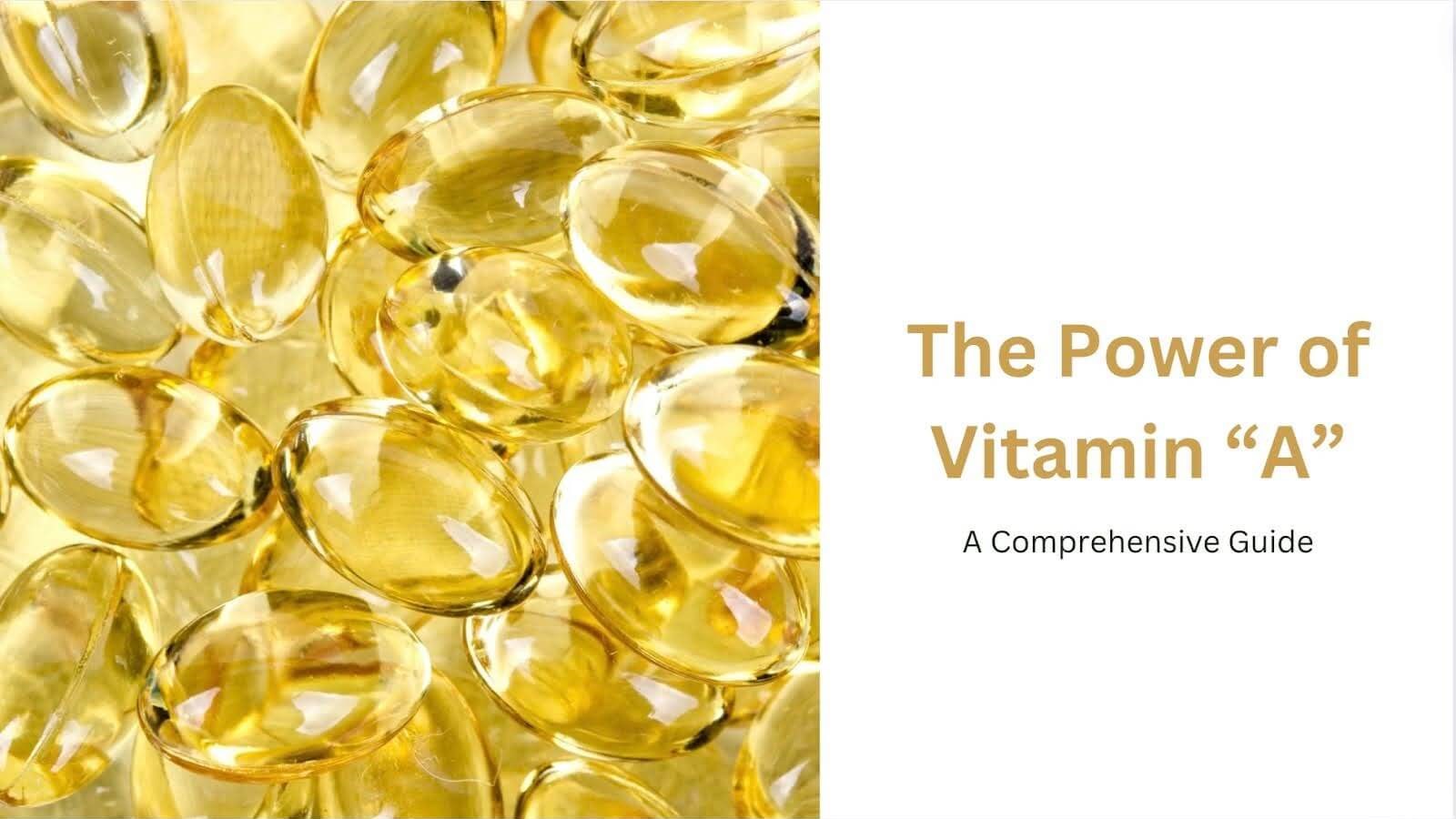The Power of Vitamin "A" - Comprehensive Guide
&srotate=0)
Vitamin A, a fat-soluble vitamin with a pivotal role in maintaining overall health, is renowned for its significant impact on skin health. Among its various forms, retinoids— compounds derived from vitamin A —are particularly celebrated for their transformative effects on the skin. This article explores the power of vitamin A, focusing on its role in treating acne, scarring, and aging, and discusses the availability and use of retinoids in both over-the-counter and prescription treatments.
Over-the-counter, refers to medicines or treatments available without a doctor's order or management. The catch? Products available directly to consumers do not necessarily have to deliver the results promised in their advertisements or on their fancy packaging. This gap in accountability also allows skincare companies to price gouge without being required to deliver the results they had originally promised. Consult with a board-certified dermatologist to curate the perfect most effective skincare regimen to accomplish your particular skin health goals.
The Role of Vitamin A in Skin Health
Vitamin A is essential for numerous bodily functions, but its influence on skin health is particularly profound. It is a vital component of various biochemical processes, including cell growth, differentiation, and repair. Vitamin A helps maintain the integrity of skin cells and tissues, which contributes to a healthy, youthful complexion.
Understanding Retinoids
Retinoids are a class of compounds that are chemically related to vitamin A. They can be categorized into two main groups:
- Natural Retinoids: These include retinol and retinaldehyde, which are found in dietary sources like liver, fish oils, and dairy products.
- Synthetic Retinoids: These are manufactured to mimic the effects of natural retinoids and include various derivatives such as retinoic acid (tretinoin), adapalene, and tazarotene.
Retinoids are well-known for their therapeutic benefits in dermatology, owing to their ability to modulate skin cell behavior. They work by promoting cell turnover, unclogging pores, and stimulating collagen production, which leads to improved skin texture and appearance.
Retinoids for Acne Treatment
Acne, a common skin condition characterized by clogged pores and inflammation, can be effectively managed with retinoids. Topical retinoids like tretinoin (a prescription medication) and adapalene (available both over-the-counter and by prescription) help prevent the formation of new acne lesions by:
- Normalizing Skin Cell Turnover: Retinoids accelerate the shedding of dead skin cells, which prevents them from accumulating and clogging pores.
- Reducing Inflammation: They have anti-inflammatory properties that help reduce redness and swelling associated with acne.
- Preventing Follicular Hyperkeratosis: Retinoids address the thickening of the outer layer of skin that can block hair follicles.
Retinoids for Scarring
Post-acne scarring can be a challenging issue, but retinoids offer a potent solution for improving the appearance of scars. By increasing cell turnover and stimulating collagen production, retinoids contribute to:
- Fading Hyperpigmentation: Retinoids help even out skin tone and reduce the appearance of dark spots and discoloration left by acne.
- Smoothing Texture: They can diminish the appearance of textural irregularities, such as pitted scars, by encouraging the formation of new, healthy skin cells.
Retinoids for Aging
Retinoids are widely recognized for their anti-aging benefits, making them a staple in many skincare routines aimed at combating signs of aging. Their effects on aging skin include:
- Stimulating Collagen Production: Retinoids enhance the production of collagen, a protein crucial for maintaining skin’s firmness and elasticity.
- Reducing Fine Lines and Wrinkles: By promoting cell turnover and collagen synthesis, retinoids can smooth out fine lines and wrinkles, leading to a more youthful appearance.
- Improving Skin Texture and Tone: They help even out skin tone and texture, reducing the appearance of age spots and rough patches.
Availability of Retinoids
Retinoids are available in various forms, making them accessible for different skincare needs:
- Over-the-Counter (OTC) Retinoids: Products containing retinol and adapalene are widely available without a prescription. These are effective for mild to moderate acne and general skin improvement.
- Prescription Retinoids: More potent retinoids, such as tretinoin, tazarotene, and stronger formulations of adapalene, are available by prescription. These are typically used for more severe acne, significant scarring, or pronounced signs of aging.
Vitamin A and its derivatives, retinoids, have proven to be powerful agents in dermatology, offering substantial benefits for acne treatment, scar reduction, and anti-aging. By enhancing skin cell turnover, reducing inflammation, and stimulating collagen production, retinoids address a wide range of skin concerns effectively. With both over-the-counter and prescription options available, individuals can choose the appropriate retinoid treatment to meet their specific skincare needs. Whether it be over-the-counter or prescription, the science and research do not lie. As such, vitamin A remains a cornerstone of dermatological care and a testament to the transformative power of nutrients in maintaining and improving skin health.